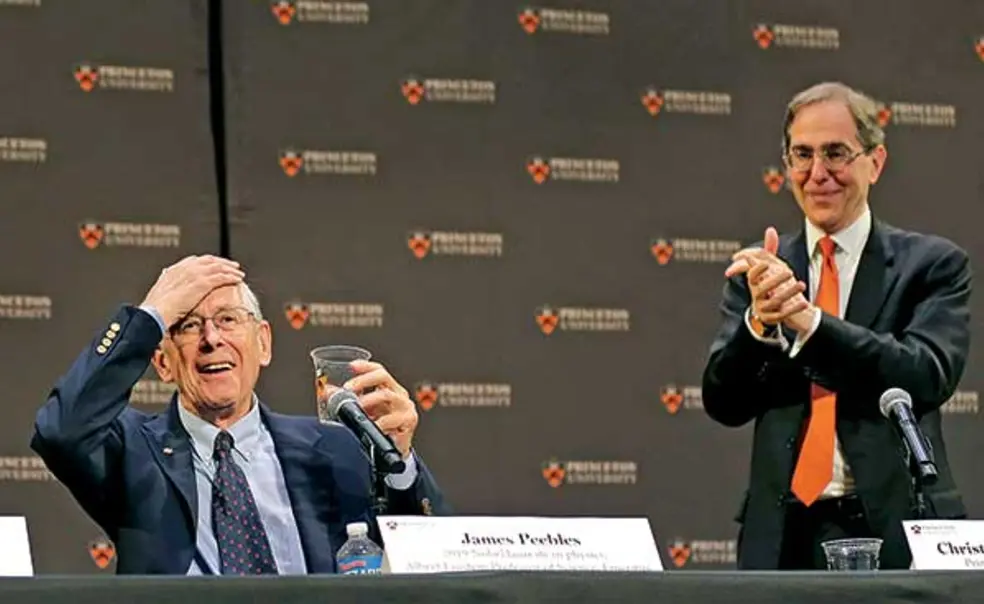Master of the Universe: Peebles *62 Shares Nobel Prize for Insights Into History of the Cosmos
When James Peebles *62 first came to Princeton, he wanted to study particle theory. It was his mentor, Professor Robert Dicke ’39, who steered him toward cosmology. “[He] told me with a wave of his hand, ‘Why don’t you go think about the theory?’” Peebles said, “and I’ve been doing it ever since.”
That advice paid off handsomely with the Oct. 8 announcement that Peebles had won the 2019 Nobel Prize in Physics. “His theoretical framework, developed over two decades, is the foundation of our modern understanding of the universe’s history, from the Big Bang to the present day,” the Royal Swedish Academy of Sciences said in a statement. Peebles also proposed the idea that a majority of the universe is made of cold dark matter and is filled with dark energy.
Peebles shares the prize with Swiss astronomers Michel Mayor of the University of Geneva and Didier Queloz of the University of Geneva and the University of Cambridge. He will receive half of the award of 9 million Swedish kronor (about $910,000).
Physical cosmology is a branch of physics and astrophysics that deals with the study of the physical origins, evolution, and structure of the universe. Peebles said that when he began his studies, he “was very uneasy about going into cosmology because the experimental observations were so modest.” His feelings eventually changed, he said, as “the field grew, and I grew with it.”
At a press conference in Richardson Auditorium the afternoon of the Nobel announcement, Herman Verlinde, the chair of the physics department, said Peebles’ work had created “the foundation for almost all of modern cosmology.”
President Eisgruber ’83 praised Peebles for his impact on the field and on decades of Princeton students in the physics department, recalling his own experience in a class taught by Peebles.
“During my own time as a physics major, Professor Peebles was a popular teacher and a fixture in the undergraduate program. I’m among the many students who benefited from his superb instruction as well as his famous ice cream breaks,” Eisgruber said, referring to a tradition in which Peebles and students would take a break from class to get ice cream from a vending machine.
Colleagues also paid tribute to the professor’s character: Peebles is “generous to his students and colleagues,” said Bill Jones, associate professor of physics. “I doubt a kinder soul has ever been so recognized.”
At the conclusion of the press conference, faculty members, friends, students, and staff gave a standing ovation and Peebles remarked, “Now I know how rock stars feel.”
Possibly even more so: Peebles is a big fan of Bob Dylan, who won the Nobel Prize for literature in 2016 but skipped the awards ceremony, waiting several months to accept the award at a private ceremony in Stockholm. “I’ve always loved Bob Dylan ... [but] I can’t forgive him for not showing up to the scene of [his] Nobel Prize,” Peebles said.
The astrophysicist plans to make sure he picks up his prize.










No responses yet